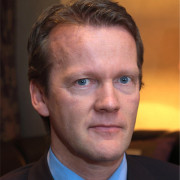Sahlberg wins prize for explaining Finland’s school success
So why do hundreds of educators from around the globe come to Finland each year looking for information on how to make their own schools better?
Pasi Sahlberg, who directs the country’s Centre for International Mobility and Cooperation, has earned the 2013 University of Louisville Grawemeyer Award in Education for answering that question in his book, “Finnish Lessons: What Can the World Learn from Educational Change in Finland?”
A decision by elected officials, social experts and policy makers in the 1970s to team up on education reform was a critical factor in Finland’s rise to academic superstar, said Sahlberg, whose agency is part of the country’s Ministry of Education and Culture.
Ensuring the same opportunities for all students and showing a high regard for the teaching profession also transformed Finland’s school system from mediocre into one of the world’s finest, he said.
“In my country, many young people want to be a teacher,” he said. “It’s a prestigious position that is earned through rigorous training, and parents don’t spend time looking over the teacher’s shoulder.”
Diane Kyle, a UofL education professor who is faculty director for the award, said there’s a lot to learn from Sahlberg’s work and experience.
“Finland’s approach to education reform contradicts just about everything the world is doing right now to improve student performance,” Kyle said. “It shows we must address student inequality before we can expect student excellence.”
UofL presents four Grawemeyer Awards each year for outstanding works in music composition, world order, psychology and education. The university and Louisville Presbyterian Theological Seminary jointly give a fifth award in religion. This year’s awards are $100,000 each.
About Pasi Sahlberg
Finland’s Pasi Sahlberg has become a global leader in education reform.
He has worked with the World Bank, European Union and governments in more than 40 nations to provide strategic guidance to make education better. His 2011 book, “Finnish Lessons: What Can the World Learn from Educational Change in Finland?” sold out within weeks of its first printing.
Now director general for the Centre for International Mobility and Cooperation in the Finnish Ministry of Education and Culture in Helsinki, Sahlberg works to promote internationalization, creativity and global learning through education, culture, youth and sport.
He also is an adjunct professor at the University of Helsinki and University of Oulu.
Sahlberg was a teacher, teacher trainer and adviser to the Finnish Board of Education before joining the World Bank in Washington, D.C. and the European Commission in Turin, Italy. He has spoken around the world to politicians, educators, business leaders and parents about the need to find an effective way to reform education.
He has co-written two books, “Cooperative Learning Handbook” and “Small Group Learning in Mathematics,” and has published more than 100 articles in journals, research periodicals and magazines worldwide.
Sahlberg earned a doctoral degree from the University of Jyvaskylä in 1996, a teacher’s diploma from the University of Helsinki in 1986 and a master’s degree in mathematics from University of Turku in 1984.
An editorial board member for the Journal of Educational Change, he also sits on the board of directors of the International Association for Studies of Cooperation in Education and the Association for Supervision and Curriculum Development.



